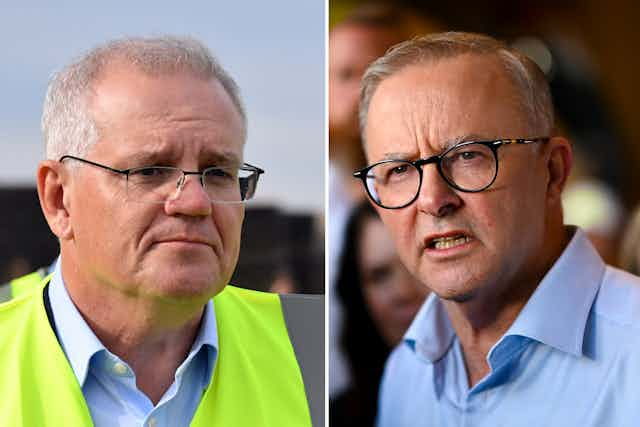As the election is looming, the Labor Party has placed integrity issues prominently on its party platform. Labor leader Anthony Albanese claims the Morrison government cannot be trusted, and that the only way to restore integrity is to elect a new government.
On the other hand, the Coalition government has downplayed integrity issues. When questioned about his broken promise to establish an integrity commission, Morrison said, “I’ll talk about what my priorities are: jobs, jobs, jobs, jobs and jobs”, giving rise to speculation the Coalition is walking back from its 2019 election promise to establish an independent anti-corruption commission.
Deputy Prime Minister Barnaby Joyce has said most voters would not care that a national integrity commission has not been established by the government. Research suggests otherwise.
So, how has the Morrison government fared in corruption issues?
Still no integrity commission
The centrepiece of the Morrison government’s failure to address corruption is its failure to establish a Commonwealth Integrity Commission.
There is strong public support for a federal anti-corruption commission, with two-thirds (67%) of Australians in favour of such a body.
After pressure from the opposition, independent MPs and advocacy groups, in 2018, the government reluctantly agreed to set up a federal integrity commission.
However, the weak, watered-down model the government proposed was roundly criticised by legal experts and commentators. It would not have the power to hold public hearings, make findings of corruption, or act on public tip-offs.
Morrison’s proposed model also has a high threshold of investigation, requiring a suspicion of criminal corruption. This means it is hard for the proposed commission to even start an investigation.
Read more: The proposed National Integrity Commission is a watered-down version of a federal ICAC
Labor is promising a stronger National Anti-Corruption Commission within six months if it wins the election, with the power to hold public hearings and the ability to make findings of corrupt conduct in public reports.
In short, for three years, the Morrison government dragged its feet, and finally shelved the proposal to establish an integrity commission in its term. It all ended in a whimper.
Rorting aplenty
Meanwhile, there have been plenty of examples of why an anti-corruption body is needed. The Morrison government has been beset by rorting scandals, such as
the “car park rorts”
the “sports rorts”
the Angus Taylor water buyback scheme (just to name a few).
If politicians abuse their powers in allocating public funds, it can give rise to political favouritism and corruption.
The continual and repeated misuse of public money erodes public trust in government. It creates the perception of politicians having their snouts in the trough, and rewarding their friends and cronies.

Drop in corruption rankings
Australia has fallen steadily in Transparency International’s global corruption index, from 8th place in 2012 to 13th in 2021. Even so, Australia is the 13th-least corrupt country in the world, which is still a respectable ranking.
Public perception on government corruption is grim. A Vote Compass survey found 85% of Australians believe corruption is a problem in this country, while only 1% say it is not a problem at all.
More alarming is the fact one in 20 Australian public servants said in a survey they had seen a colleague acting in a corrupt manner. This figure has doubled in the past three years.
Undue influence in government
There are also other activities that do not amount to corruption, but nevertheless shows an undue influence on government.
The influence of money in politics is strong, with lax donations rules at the federal level. Big donors may have more access and influence in government.
The game of mates also proliferates, where those who can afford well-connected lobbyists have better access to politicians. This skews democratic participation towards the well-heeled, rather than the person on the street.
There should be stronger rules on lobbying and political donations, as well as a code of conduct for MPs, policed by an independent commissioner.
Read more: As the government drags its heels, a better model for a federal integrity commission has emerged
The verdict
The Morrison term has not inspired much confidence in terms of integrity issues. Their failure to address corruption and undue influence, and their continual rorting of the public purse, show a blatant disregard of the electorate’s wishes and needs.
Our faith in government has been eroded by a lack of transparency and the perception that those in power are enjoying unfair benefits. Creating robust institutions, rules and processes that can act as checks and balances on governmental power is key to a vibrant democracy - and will be the first step towards rebuilding public trust.

